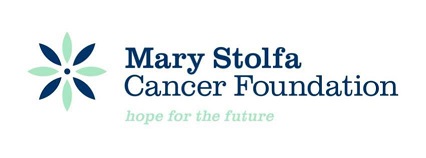Cigarette smoking is the single most preventable cause of premature death in the United States. Each year, more than 400,000 Americans die from cigarette smoking. In fact, one in every five deaths in the United States is smoking related. Every year, smoking kills more than 276,000 men and 142,000 women.
Between 1960 and 1990, deaths from lung cancer among women have increased by more than 400%--exceeding breast cancer deaths in the mid-1980s. The American Cancer Society estimated that in 1994, 64,300 women died from lung cancer and 44,300 died from breast cancer.
Men who smoke increase their risk of death from lung cancer by more than 22 times and from bronchitis and emphysema by nearly 10 times. Women who smoke increase their risk of dying from lung cancer by nearly 12 times and the risk of dying from bronchitis and emphysema by more than 10 times. Smoking triples the risk of dying from heart disease among middle-aged men and women.
Every year in the United States, premature deaths from smoking rob more than five million years from the potential lifespan of those who have died.
Annually, exposure to secondhand smoke (or environmental tobacco smoke) causes an estimated 3,000 deaths from lung cancer among American adults. Scientific studies also link secondhand smoke with heart disease.
Nicotine: A Powerful AddictionIf you have tried to quit smoking, you know how hard it can be. It is hard because nicotine is a very addictive drug. For some people, it can be as addictive as heroin or cocaine.
Quitting is hard. Usually people make 2 or 3 tries, or more, before finally being able to quit. Each time you try to quit, you can learn about what helps and what hurts. Quitting takes hard work and a lot of effort, but you can quit smoking.
Quitting smoking is one of the most important things you will ever do.
Five Keys for Quitting
Studies have shown that these five steps will help you quit and quit for good. You have the best chances of quitting if you use them together.
- Get ready.
- Get support.
- Learn new skills and behaviors.
- Get medication and use it correctly.
- Be prepared for relapse or difficult situations.
1. Get Ready
2. Get Support and Encouragement
Studies have shown that you have a better chance of being successful if you have help. You can get support in many ways:
- Tell your family, friends, and co-workers that you are going to quit and want their support. Ask them not to smoke around you or leave cigarettes out.
- Talk to your health care provider (for example, doctor, dentist, nurse, pharmacist, psychologist, or smoking counselor).
- Get individual, group, or telephone counseling. The more counseling you have, the better your chances are of quitting. Programs are given at local hospitals and health centers. Call your local health department for information about programs in your area.
3. Learn New Skills and Behaviors
- Try to distract yourself from urges to smoke. Talk to someone, go for a walk, or get busy with a task.
- When you first try to quit, change your routine. Use a different route to work. Drink tea instead of coffee. Eat breakfast in a different place.
- Do something to reduce your stress. Take a hot bath, exercise, or read a book.
- Plan something enjoyable to do every day.
- Drink a lot of water and other fluids.
4. Get Medication and Use It Correctly
Medications can help you stop smoking and lessen the urge to smoke.
- The U.S. Food and Drug Administration (FDA) has approved five medications to help you quit smoking:
- Bupropion SR—Available by prescription.
- Nicotine gum—Available over-the-counter.
- Nicotine inhaler—Available by prescription.
- Nicotine nasal spray—Available by prescription.
- Nicotine patch—Available by prescription and over-the-counter.
- Ask your health care provider for advice and carefully read the information on the package.
- All of these medications will more or less double your chances of quitting and quitting for good.
- Everyone who is trying to quit may benefit from using a medication. If you are pregnant or trying to become pregnant, nursing, under age 18, smoking fewer than 10 cigarettes per day, or have a medical condition, talk to your doctor or other health care provider before taking medications.
5. Be Prepared for Relapse or Difficult Situations
Most relapses occur within the first 3 months after quitting. Don't be discouraged if you start smoking again. Remember, most people try several times before they finally quit. Here are some difficult situations to watch for:
- Alcohol. Avoid drinking alcohol. Drinking lowers your chances of success.
- Other Smokers. Being around smoking can make you want to smoke.
- Weight Gain. Many smokers will gain weight when they quit, usually less than 10 pounds. Eat a healthy diet and stay active. Don't let weight gain distract you from your main goal—quitting smoking. Some quit-smoking medications may help delay weight gain.
- Bad Mood or Depression. There are a lot of ways to improve your mood other than smoking.
If you are having problems with any of these situations, talk to your doctor or other health care provider.
Special Situations or Conditions
Studies suggest that everyone can quit smoking. Your situation or condition can give you a special reason to quit.
- Pregnant women/new mothers. By quitting, you protect your baby's health and your own.
- Hospitalized patients. By quitting, you reduce health problems and help healing.
- Heart attack patients. By quitting, you reduce your risk of a second heart attack.
- Lung, head, and neck cancer patients. By quitting, you reduce your chance of a second cancer.
- Parents of children and adolescents. By quitting, you protect your children and adolescents from illnesses caused by second-hand smoke.
- Set a quit date.
- Change your environment. 1.Get rid of ALL cigarettes and ashtrays in your home, car, and place of work.
2.Don't let people smoke in your home.
- Review your past attempts to quit. Think about what worked and what did not.
- Once you quit, don't smoke—NOT EVEN A PUFF! You will live longer and live better.
- Quitting will lower your chance of having a heart attack, stroke, or cancer.
- If you are pregnant, quitting smoking will improve your chances of having a healthy baby.
- The people you live with, especially your children, will be healthier.
- You will have extra money to spend on things other than cigarettes.
Questions to Think About:
Think about the following questions before you try to stop smoking. You may want to talk about your answers with your health care provider.
- Why do you want to quit?
- When you tried to quit in the past, what helped and what didn't?
- What will be the most difficult situations for you after you quit? How will you plan to handle them?
- Who can help you through the tough times? Your family? Friends? Health care provider?
- What pleasures do you get from smoking? What ways can you still get pleasure if you quit?
Here are some questions to ask your health care provider:
- How can you help me to be successful at quitting?
- What medication do you think would be best for me and how should I take it?
- What should I do if I need more help?
- What is smoking withdrawal like? How can I get information on withdrawal?
WANT TO TAKE THE FIRST STEP TO QUITTING? VISIT ONE OF THESE FOLLOWING PAGES THAT MAY ASSIST:
Smokefree.gov
American Lung Association
Center of Disease Control and Prevention
WhyQuit.com
This information was taken from Treating Tobacco Use and Dependence, a U.S. Public Health Service-sponsored Clinical Practice Guideline. This guideline was developed by a non-Federal panel of experts sponsored by a consortium consisting of Federal Government and nonprofit organizations:
Agency for Healthcare Research and Quality (AHRQ).
Centers for Disease Control and Prevention (CDC).
National Cancer Institute (NCI).
National Heart, Lung, and Blood Institute (NHLBI).
National Institute on Drug Abuse (NIDA).
Robert Wood Johnson Foundation (RWJF).
University of Wisconsin Medical School's Center for Tobacco Research and Intervention (CTRI).




